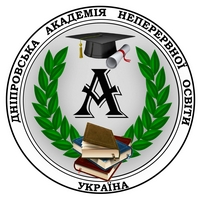DIDACTIC PRINCIPLES OF TRAINING FUTURE TEACHERS FOR THE USE OF INNOVATIVE TECHNOLOGIES
Abstract
The article analyzes developments on the application of didactic principles in the process of professional training of future teachers of pedagogical disciplines for the innovative technologies use. The conditions and ways of implementing the specified didactic principles are revealed. The following didactic principles are highlighted and systematized: the principle of scientificity; the principle of accessibility of education; the principle of systematicity and consistency; the principle of strength of knowledge, abilities and skills; the principle of visibility; the principle of connection between theory and practice; the principle of consciousness, activity, independence. It is emphasised that the classical principles of didactics in the methodological system with the use of innovative technologies have their own specifics. A discipline using innovative technologies is subject to a number of requirements in the design process: psychological, reflecting the patterns of knowledge acquisition; scientific, reflecting the scientific orientation in the discipline; related to future professional activities reflected in the model of specialist training; software, designing curricula or selecting software methodology for use at a certain stage of the educational process. For the successful implementation of the proposed principles, the following conditions must be met: a high level of organization of the educational process using innovative technologies; the use of appropriate means that stimulate the emergence and development of motivation among future teachers of pedagogical disciplines to use innovative technologies in all types of cognitive activity; systematization of knowledge and skills in the application of innovative technologies in the process of studying a special course; acquisition of future teachers of pedagogical disciplines with the experience of using innovative technologies during social-pedagogical and propaedeutic practices; ensuring the emotionality of learning and creating a favorable atmosphere in the process of educational activities. It is noted that the use of innovative technologies should be carried out taking into account the classical didactic principles that are implemented in the process of training in the conditions of traditional education.
References
2. Гарна С. Урок літератури – це урок творчості. Освіта України. 2018. № 40. 13 с.
3. Голуб Н. Б. Риторика у вищій школі: монографія. Черкаси: Брама, 2008. 400 с.
4. Грабовська С. Л. Інтерактивне навчання у вузі: проблеми і перспективи. Вісник Львівського університету. Серія педагогічна. 2004. Вип. 15 (4.2). С. 171–176.
5. Державні стандарти професійної освіти: теорія і методика: монографія / за ред Н. Г. Ничкало. Хмельницький: ТУП, 2002. 334 с.
6. Дубініна О. В. Психолого-педагогічні умови формування професійної компетентності у майбутніх автослюсарів в центрах професійно-технічної освіти. Наук. часопис НПУ імені М. П. Драгоманова. 2011. Вип. 17. С. 32–40.
7. Дубініна О. В. Сучасні тенденції формування професійної компетентності майбутнього автослюсаря в центрах професійно-технічної освіти. Якість технологій – якість життя: зб. тез IV Міжнар. наук.-практ. конф. (Харків, 15–19 вересн. 2011 р.). Харків. 2011. С. 34–36.
8. Зайченко І. В. Педагогіка: навч. посіб. / Чернігів: ЧДПУ, 2003. 528 с.
9 Енциклопедія педагогічних технологій та інновацій / авт.-укл. Н. П. Паволокова. Харків: Основа, 2009. 176 с.
10. Кочан І. Нові освітні технології в практиці викладання української мови як іноземної. Теорія і практика викладання української мови як іноземної. 2008. Вип. 3. С. 14–20.
11. Кучерук О. А. Перспективні технології навчання в шкільному курсі української мови: навч. посіб. / Житомир: ЖДУ ім. І. Франка, 2007. 182 с.
12. Потапенко О. І., Потапенко Г. І., Кожуховська Л. П. Інноваційні технології навчання методики української мови у вищих навчальних закладах та середніх освітніх закладах: навч. посіб. / Київ: Міленіум, 2006. 142 с.
13. Стратегія розвитку вищої освіти в Україні на 2022–2032 роки. URL: https://mon.gov.ua/storage/app/media/news/2022/04/15/VO.plan.2022-2032/Stratehiya.rozv.VO-23.02.22.pdf (дата звернення: 30.11.2023).
14. Фетюкова Л. А., Телехова О. П. Інноваційні підходи у викладанні навчальних дисциплін та їх роль у педагогічній підтримці обдарованих учнів. Вивчаємо українську мову та літературу. 2018. Вип. № 8. С. 2–8.
15. Хрестоматія з історії дошкільної педагогіки: навч. посіб / за заг. ред. З. Н. Борисової. Київ: Вища школа, 2004. 511 с.

 ISSN
ISSN  ISSN
ISSN 

